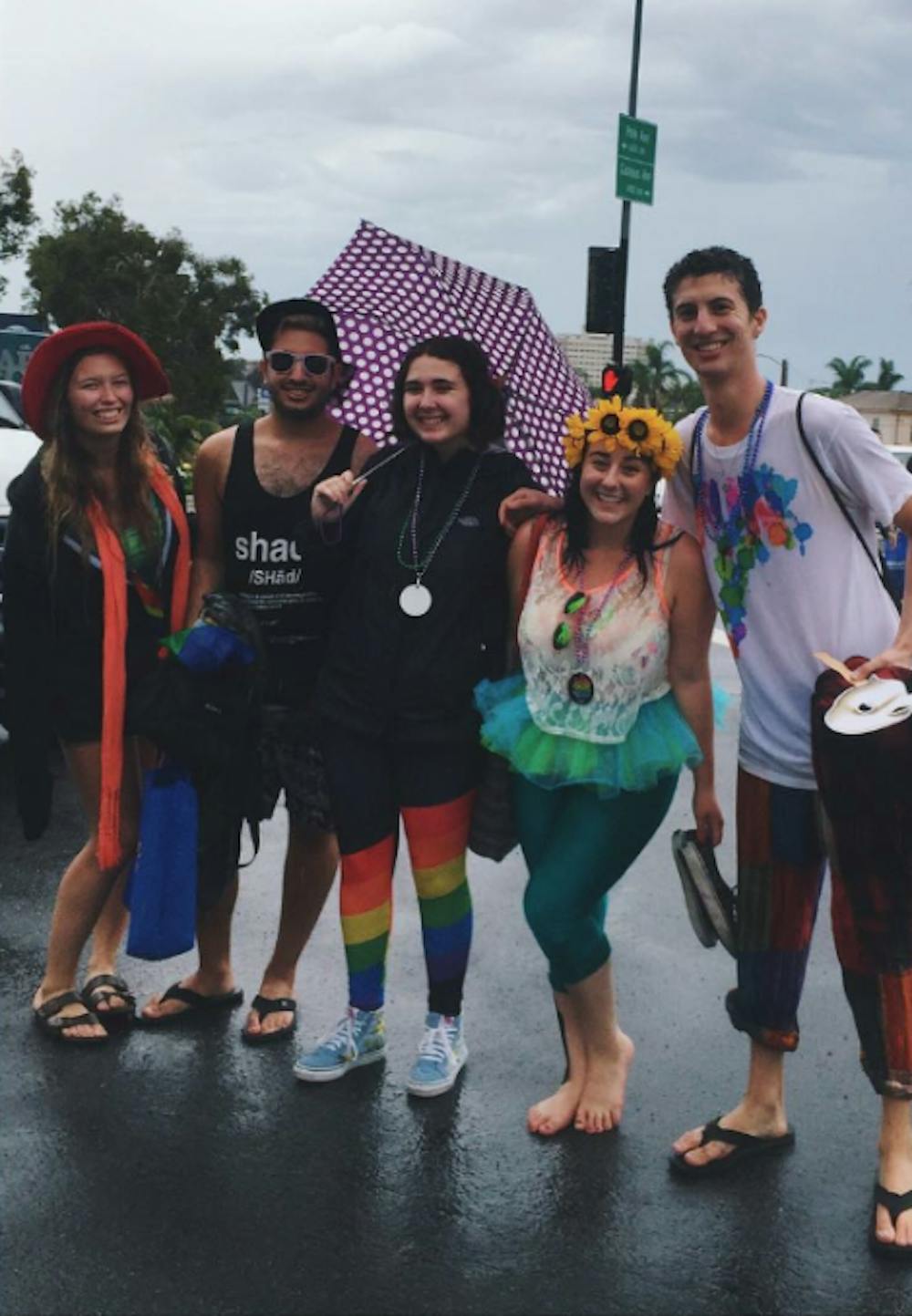I’ve spent the last year trying to write screenplays and short stories about teenage girls struggling to come out to their families and friends, and one question always came up from my peers in workshop and my professors: “I don’t understand why it’s so hard for her to come out.”
I don’t think I understood either until I was ready to write this article.
My name is Gillian Lelchuk, and I am gay. I am a lesbian. I am queer. I date women. And that’s the first time I’ve said (written?) that in a public forum.
It’s important to me that I write this, and I’ve wanted to write this, or some version of this, for almost two years. Since June 26, 2015.
That’s the day the Supreme Court overturned the Defense of Marriage Act and upheld the ruling that overturned Proposition 8’s same-sex marriage ban in California. That’s the day the Supreme Court told America that love is love, and that’s the day that rainbows took over the internet.
I woke up that morning to text messages from friends telling me how excited they were for me. I scrolled through my Facebook feed and watched as everyone I knew threw rainbow filters over their profile pictures. I checked Twitter and smiled when every major company celebrated the decision.
I wanted to kick the door down and burst out of the closet.
That day, I wanted so badly to tell the world which side of the rainbow I landed on. I had told my mom exactly 11 days before. I had told my older sister a few months before. If there was any day to come out, it was that day.
But I didn’t. And that summer, I worked for a Los Angeles-based Christian theater group, and that same week I overheard one of the actors, a man I had previously respected, break my heart.
“We’re in the end of days,” he said. “What was once considered right is now wrong, and what was once wrong is now right.”
I never came out to him or anyone else in that group. I never even told them I’m Jewish.
I came out to my dad a few weeks later. This year, he almost banned the HGTV show Fixer Upper from our house because its hosts were maybe homophobic. (Disclaimer: they are not, and we still watch Fixer Upper.)
It’s been almost two years since the SCOTUS decision, so you’re probably wondering what happened in the meantime and why I hadn’t written this sooner in some capacity.
Nothing really happened in the interim. I came out to my friends at school. I came out to my friends at home. I dated a couple of girls. I decorated my bedroom with rainbows. For all intents and purposes, I did come out.
But I never put anything on Facebook or anywhere else online, and it took me a while to figure out why. I was ashamed.
Sure, I went to pride parades, and I bought rainbow leggings, and I wore my “Make America Gay Again” hat before that joke became a mark of defiance. I had accepted who I was, and so had everyone else, but I still wasn’t “out” online. I never hid anything, but I wasn’t explicit.
I chalked it up to my future employers seeing it, but that’s not really why. The internet is scary, and internet people are mean, and I still felt shame over who I was. I was afraid.
More and more LGBT+ people are coming out, and for many people, it isn’t as much of an othering experience as it once was. But for me, it was a big deal. Being gay made me feel different, and I spent so long being afraid that this difference was going to cost me relationships, that it was going to make people look at me differently.
For a while, I thought I wouldn’t ever come out. I’d just date girls and maybe get married but never actually say the words. And that choice would be totally fine and valid, but I can’t sit still and let myself slide through like that anymore.
As much as I wish it weren’t, my sexual identity is politicized, and I have a responsibility to stand up and speak out even when I’m afraid. My rights should not be up for grabs, but if I don’t fight for them, how can I expect anyone else to?
I am extremely privileged, and I am so grateful to my family for giving me the world. But I need to fight to keep it and fight to hand it to other LGBT+ people, especially young people and people of color.
And maybe, just maybe, someone else who’s struggling the same way I did will read this and know that yes, there are things to be afraid of, but they can’t stop you unless you let them. You are bigger than your fears, and you have so much to be proud of.
Coming out is hard and it’s scary, but for me, it’s essential. I am proud of who I am, and I am proud of the people who stand beside me, in the closet or out.

















